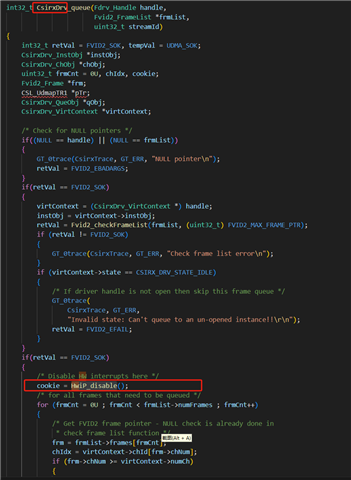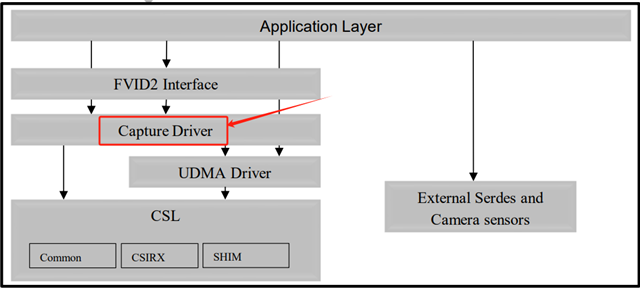Tool/software:
HI TI
Software Platform: ti-processor-sdk-rtos-j721e-evm-08_01_00_13
We would like to monitor the frame rate of the surround-view cameras within the FVID and Csirx driver modules. When FVID or Csirx fails to receive data from the cameras, we need MCU2_0 to output relevant logs. The purpose is to facilitate problem location when the application layer does not receive the frame rate information.
Could you please advise on how to add the relevant logs?
Thank you.




